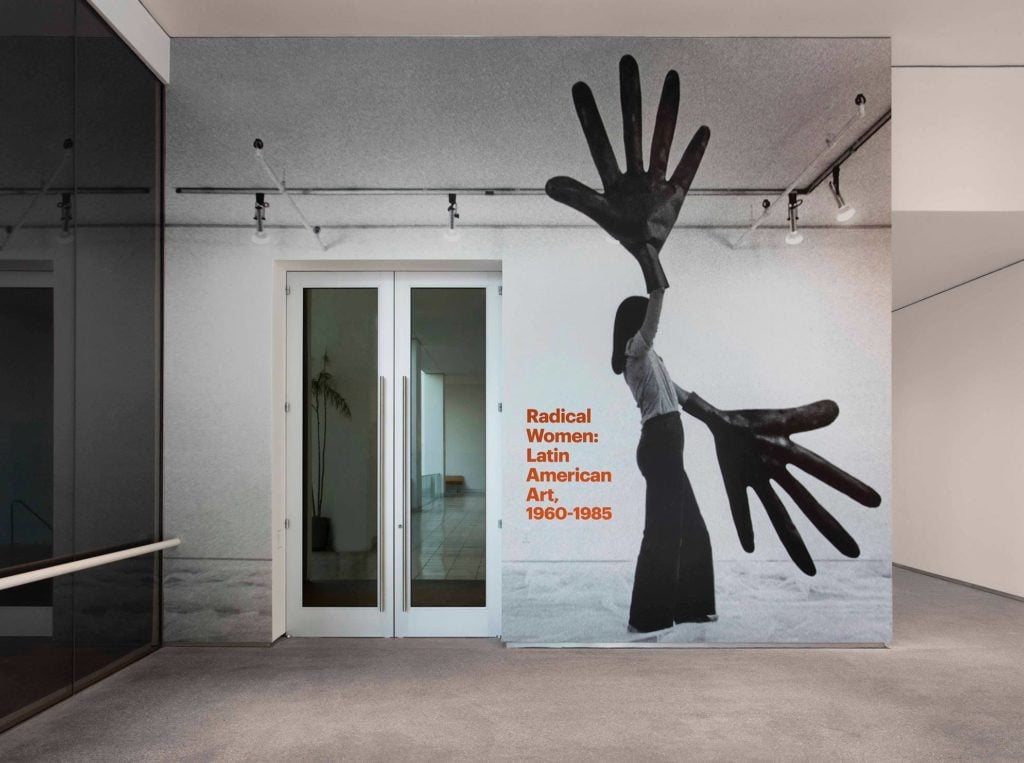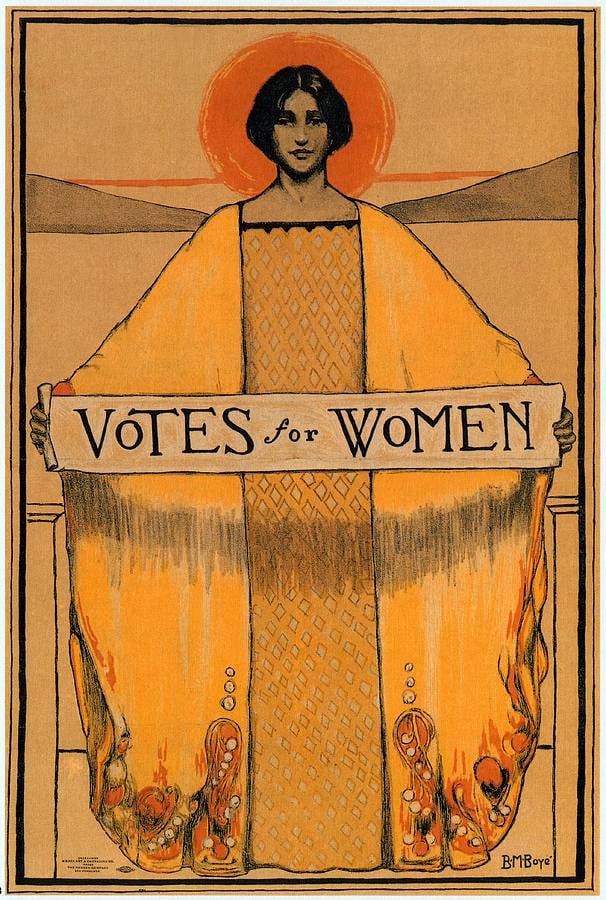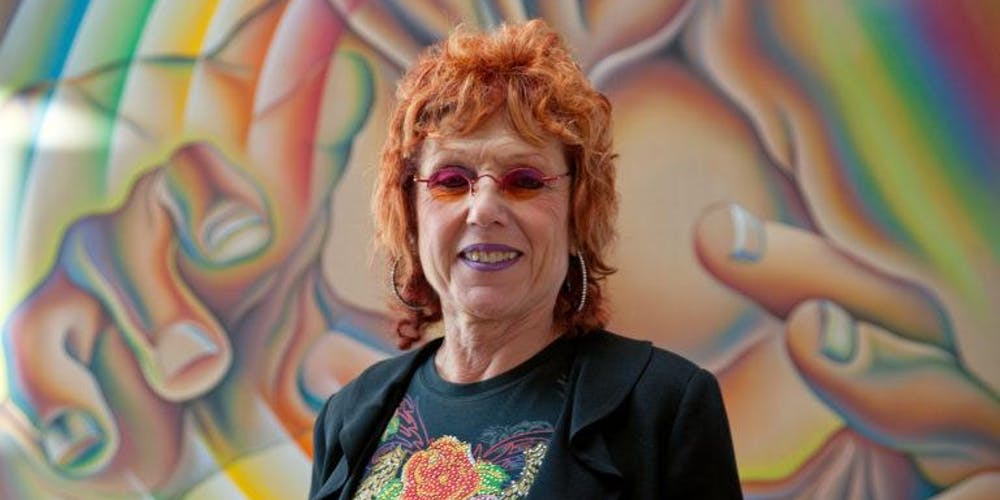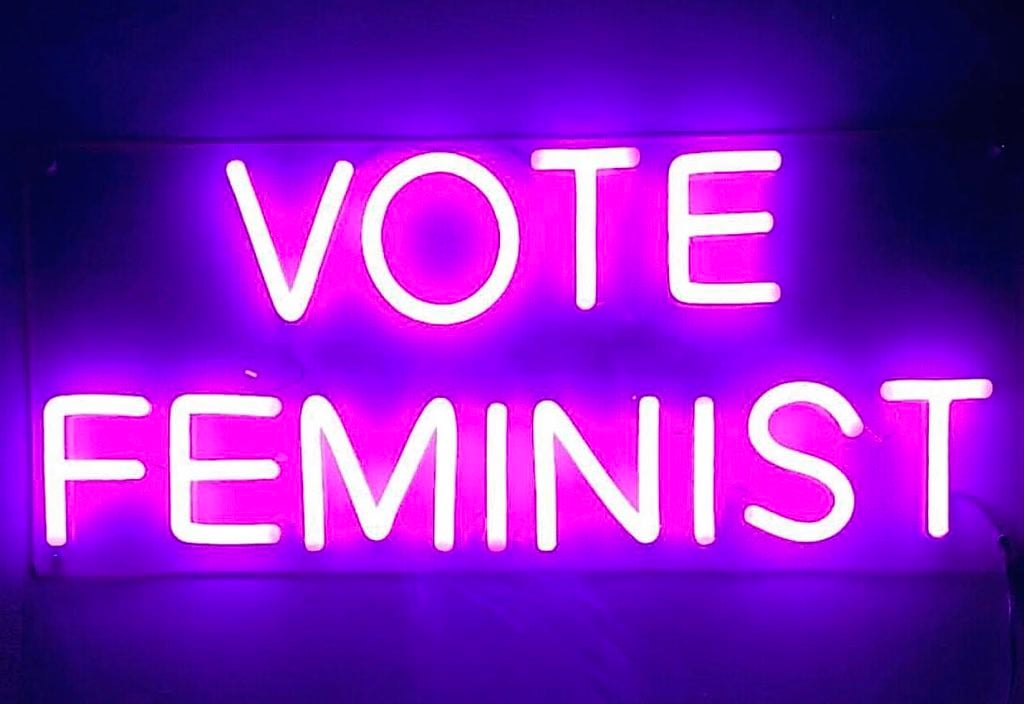Art & Exhibitions
50 US Museums Are Teaming Up to Organize Exhibitions of Female Artists in the Run-Up to the 2020 Election
The Feminist Art Coalition launches this week online, and is coming to a museum near you.

The Feminist Art Coalition launches this week online, and is coming to a museum near you.

Sarah Cascone

In the aftermath of the election of President Donald Trump and the 2017 Women’s March, one curator was inspired to take action on behalf of women artists, creating an initiative to help promote feminist art exhibitions, performances, and programs around the country ahead of the 2020 presidential election.
This week, the fruits of her labor will become public. Apsara DiQuinzio, the senior curator of Modern and contemporary art at the Berkeley Art Museum and Pacific Film Archive, will officially launch the Feminist Art Coalition (FAC), a nationwide effort to organize shows of art by women. The Hammer Museum at UCLA in Los Angeles, the Whitney Museum of American Art in New York, and the Walker Art Center in Minneapolis are among the 50 museums that have already signed on to participate, and DiQuinzio expects more to follow suit.
The project has been spearheaded by a small group of dedicated curators. “We started meeting informally,” DiQuinzio told Artnet News. “The inspiration for the project was really the Getty’s Pacific Standard Time. Thinking about how we could organize on a national scale without the budget of the Getty, we decided that it really had to be a grassroots initiative.” (The Art Newspaper was the first to report on the program.)
“Many of us were caught off guard by the results of the 2016 presidential election,” DiQuinzio added. “This urgent need to do something was how this came about. We thought it would be good to create a cultural groundwork where important conversations relating to gender and politics could take place within art institutions in a thoughtful, strategic way in the lead up to the 2020 election.”

Vintage poster for women’s suffrage, a copy of which is included in “Votes for Women: A Portrait of Persistence,” currently on view at the National Portrait Gallery in Washington, DC. Courtesy of the National Portrait Gallery.
The project’s website, Feministartcoalition.com, is going live on November 5, just in time for this year’s election day. The exhibitions, most of which will launch in fall 2020, are also timed to the centennial of the 19th amendment, which was ratified in 1920 and granted women the right to vote. (“An incredible coincidence,” said DiQuinzio.)
In 2017, the Warhol Foundation awarded DiQuinzio a $50,000 curatorial grant, which helped fund a three-day colloquium at BAMPFA in April 2018, culminating with a public program at UC Berkeley. Titled “Feminist Curatorial Practices: A Roundtable Convening,” the panel discussion featured female curators and museum directors from around the country and served as a starting point for the broader project.
“The curators in the room for the roundtable had all shown a commitment to diversity and inclusion within their own curatorial practices,” participant Anne Ellegood, then senior curator at the Hammer and now director of the ICA LA, told artnet News. “The project is specifically intended to encourage feminist discourse and increase awareness of how feminist goals seek to benefit all of society.”

Judy Chicago. Photo courtesy of Salon94.
Next fall’s FAC exhibitions will include “Lorraine O’Grady: Both/And” at the Brooklyn Museum, a Dorothy Iannone show at MIT List, Dorothy Napangardi at the Seattle Art Museum, and Virginia Jaramillo at the Menil Collection in Houston, not to mention the highly anticipated Judy Chicago retrospective at the de Young Museum in San Francisco.
At the ICA LA and the Hammer, Ellegood and Hammer chief curator Connie Butler are teaming up on a joint group show of mid-career artists including Yael Bartana, Vaginal Davis, and Teresa Margolles called “Witch Hunt,” while diQuinzio is curating “New Time: Art and Feminisms in the 21st Century” at BAMPFA. The show will feature more than 100 works by about 75 international artists from the turn of the millennium through today, and such programming as Michele Pred’s “Vote Feminist” parade, a followup to events staged in Miami, New York, San Francisco, and Stockholm.
In addition to showcasing woman-centric programming at institutions across the country, the FAC website will also offer a feminist art reading list, recommending existing books and videos as well as “Notes on Feminisms,” a series of newly commissioned essays.

Michele Pred, Vote Feminist will be included in “New Time: Art and Feminisms in the 21st Century” at the Berkeley Art Museum and Pacific Film Archive. Photo courtesy of the artist.
Despite a growing amount of awareness that women have not been given as much museum exposure as their male peers, the numbers remain wildly unequal. Just 11 percent of acquisitions and 14 percent of exhibitions at 26 high-profile American museums were of work by women over the past decade, according to a recent investigation by Artnet News and In Other Words.
“In the last couple years,” said DiQuinzio, “there’s been a lot of progress toward diversifying museum programming. It’s been kind of the zeitgeist, and it’s very encouraging to see, but we still have a lot more work to do obviously, particularly in the representation in institutional collections.”
DiQuinzio and her collaborators have been spreading the word about FAC among their colleagues and at different conferences, but this week’s official project launch should take the initiative to the next level. “We’re hoping,” she added, “that it will sort of grow organically, sort of like the Women’s March did.”